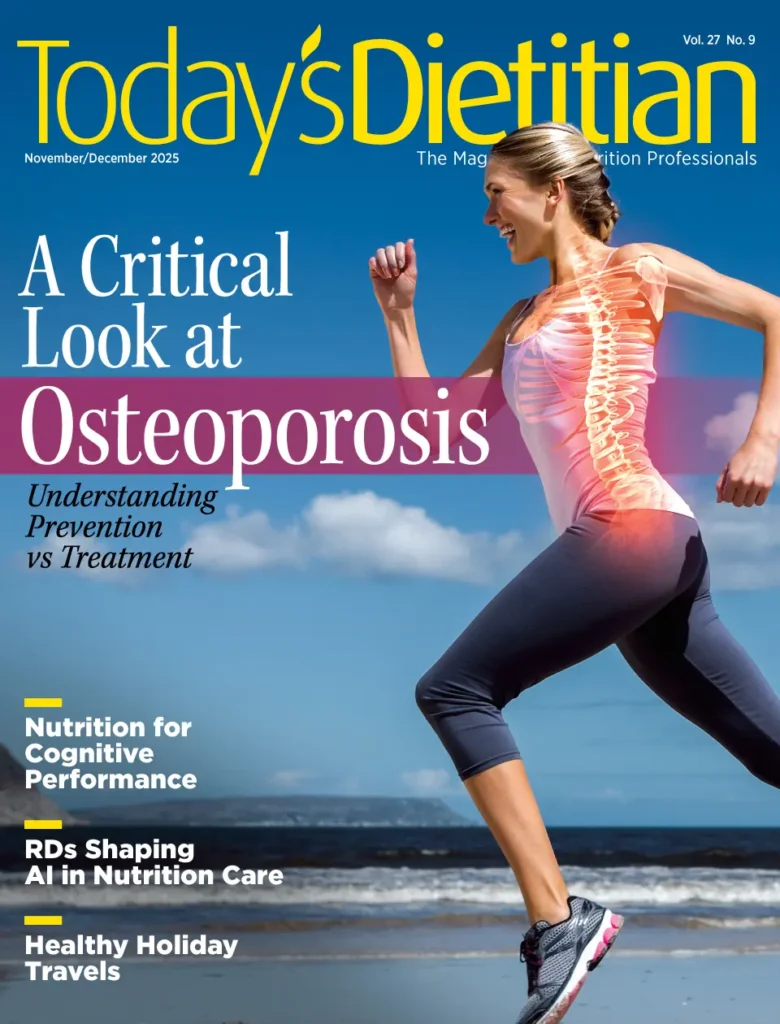By Brianna Tobritzhofer, MS, RD, LD
RDs are familiar with the steps required to become credentialed, including using the online Dietetic Internship Centralized Application System (DICAS) Match system to be placed in a dietetic internship (DI) program. In the last few rounds of DICAS Match, there’s been a considerable change in the number of spots available for interns vs the number of applicants.
According to the Accreditation Council for Education in Nutrition and Dietetics, 73% of applicants were accepted to DIs through DICAS in 2021. Compare this with 2016, when the acceptance rate was only 51%. One reason for the growth in acceptance rates is that there are more spots available for interns than there are applicants. For example, there were 3,723 DI openings in 2021 but only 3,676 applicants. However, the reasons behind this disparity are unclear.
While research hasn’t been conducted to explain the shift in applicant numbers vs spots available, Didactic Program in Dietetics (DPD) and internship faculty have experienced the impact of changing applicant numbers firsthand. Today’s Dietitian speaks with some of these staff members, who provide insights on reasons for the shift and how it may impact the future of dietetics.
The Pandemic’s Impact
The COVID-19 pandemic has affected the number of DI applicants in a variety of ways. Prospective interns have had difficulty securing preceptors and rotation sites and are afraid of contracting and spreading the virus during in-person rotations. Meanwhile, health care facilities have implemented restrictions that limit the presence of nonstaff such as interns.
According to Lacie Peterson, PhD, RDN, dietetic internship director at Utah State University, “Many distance DIs require students to self-identify preceptors. This has been more challenging during COVID-19, as facilities have had restrictions for employees and often can’t support training students. On the other hand, health care providers, including RDs, have had increased workloads and stress professionally and personally from the pandemic. This has led to RDs changing jobs and/or being hesitant to take on the added duty of precepting students.”
Katie Bigart, MS, RDN, LD, program director for the Be Well Solutions Dietetic Internship, provides a different perspective based on what applicants have shared with Be Well Solutions. “Some students have been hesitant to start their DI during a pandemic in fear that they wouldn’t be able to find preceptors, the quality of their experience would be subpar, and general worries about their health and safety.”
Financial and Career Concerns
It likely will take a few years for the number of DI applicants to increase due to the pandemic’s residual effects. However, some students simply are choosing to pursue other career options instead of applying to DIs.
According to Andrea Gorman, PhD, MS, RD, LD, director of the coordinated program in dietetics at Framingham State University in Massachusetts, students often consider taking the DTR exam and working to get experience before applying to DIs. Peterson has a similar perspective: “This year, we had more DPD students who were not able to apply to DI programs for financial reasons, but hope to work and apply in the next year or two.”
It’s possible that the Future Education Model (FEM), a pilot program from the Accreditation Council for Education in Nutrition and Dietetics, as well as distance DIs, could be drawing more future RDs away from traditional DIs. FEM combines a graduate degree program with supervised practice, eliminating the need for prospective RDs to find a traditional DI. However, it’s unclear how many students are completing their training through an FEM, as this information hasn’t been made available. Despite this, “we do know that the number of dietetics students at entry level of training has decreased,” Peterson says.
Lastly, many dietetics students are wary of pursuing DIs due to the upcoming 2024 MS degree requirement. Bigart says, “Many interns don’t want to undertake the financial burden of the cost for both an internship and graduate program with the current average salary of starting RDs.” Mandy Conrad, PhD, RDN, LD, DPD director and an instructor at Mississippi State University, says some of her DPD students are choosing to apply to nursing school, speech language pathology programs, or other health profession programs rather than continue in dietetics.
Weighing Staffing Shortages
In addition to these issues, staffing shortages have made it challenging for DI programs and interns to secure clinical rotation sites. “Clinical sites have had great difficulty filling job openings, as many RDs left patient-facing positions during the pandemic,” Gorman says. “Understaffed hospitals are not willing to precept students.”
Peterson adds, “One of the most common conversations I have had with preceptors over the past year is related to staffing shortages. It has been regarding student placements but also looking for new graduates to fill open positions. Employee compensation is playing a significant role in recruiting and retaining RDs in various positions.”
Indeed, prospective dietetics students often are deterred by the cost of education to become an RD, which requires graduate school tuition and DI fees. The costs tend to be disproportionate with the salaries for entry-level RDs. Other allied health care professionals, such as nurses or physician assistants, usually have greater starting salaries than entry-level RDs, potentially making them more attractive career options.
Over the next few years, nutrition professionals likely will continue to see changes regarding the number of DI applicants as the MS requirement is implemented and more information on the impact of FEM programs becomes available. DPD and internship programs are at the forefront of educating students on the paths they can take to become RDs and assisting them with the process.
— Brianna Tobritzhofer, MS, RD, LD, is a faculty advisor and marketing manager for the Be Well Solutions Dietetic Internship.


